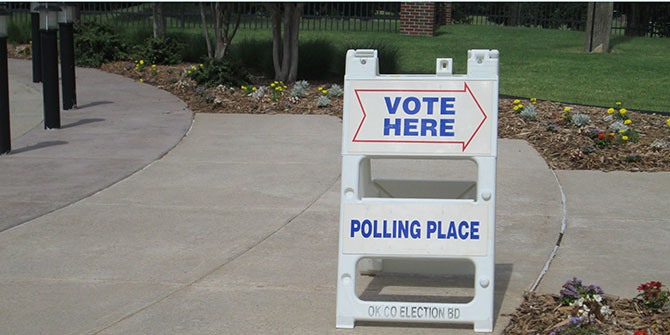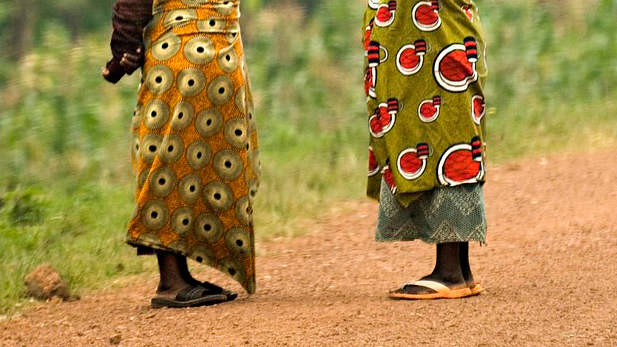Ini Dele-Adedeji describes Shobana Shankar’s book as a landmark work that will usher in new era of writing on northern Nigeria.
‘Who Shall Enter Paradise: Christian Origins in Muslim Northern Nigeria, ca. 1890-1975 is a concise work which will most assuredly prove to be vital reading to students of northern Nigeria. The author of this fine work is Shobana Shankar, an Assistant Professor of History at Stony Brook University (SUNY). The pertinence of this historical work lies in its potential as an alternative source to counterbalance the misleading yet popular narrative which prefers to depict the part of Nigeria commonly called the ‘’core north’’ as being an almost, if not, exclusive preserve of Muslims. Furthermore, rather than just presenting Christians and Muslims as distinct religions co-existing within the same space, this book uses a larger magnifying historical lens. As such, it ensures that some light is also shed, by extension, on the Maguzawa, the indigenes of northern Nigeria who practised the traditional pre-Islamic religions.
Shobana Shankar makes the case that Christian identities and communities have been framed and developed over the years, since the arrival of foreign missionaries, together with that of Islam, the predominant religion of northern Nigeria. In certain areas of the economy, such as the education and health sector, there was a heavy influence of foreign Christian missionaries which in turn led to the employment of many Christian natives in these areas. However, due to the recognition of the invaluable services offered, for example, by Christians who had a near-monopoly over the dispensing of non-traditional medicine, this brought about increased contact and interaction between two groups.
Far beyond these religious groups interacting out of necessity, both Christian and Muslim identities became entwined through various socio-economic factors. Many aspects of Muslim collective identity in northern Nigeria were influenced by contact with Christians. Likewise, northern Christians for many reasons, with ease of assimilation being one particular factor, seemed to assume a fluid identity which allowed them to retain their faith while still maintaining ‘’access’’ to the Muslim communities around them, more so as many had relatives who belonged to both religious faiths.
A potent example of the fluidity of religious identity within the northern region and how a Christian-Muslim dichotomy was not always so clear-cut during this period can be found in a statement made by a school official at the time, which Shankar unearths. He is recorded as saying that ‘’Muslim students would come in, change their names to Christian ones, as soon as they graduated they would revert back to Islam and take Muslim names because they could get employment more easily. They put on the cloak of Christianity because they knew they’d get a better education’’.
Shankar does not totally gloss over tensions between Christians and Muslims, which did exist during the time-period her book covers. She details the opposition which arose between the relatively fledgling Christian faith, during this period and that of the Muslims, who were averse to the inroads being made into “Muslim territories” by proselytisers, mainly from the Sudanese Interior Mission. Paradoxically, this had the effect of galvanising Muslims into being more innovative and pro-active about their approach in trying to convert Christians and Maguzawa in the northern region. This was most exemplified by the actions of the Sardauna of Sokoto, Ahmadu Bello, when he began his popular ‘’mass conversion’’ tour of northern Nigeria.
On the other hand, in spite of the seemingly antagonistic relationship between Christians, as represented by the foreign missionaries, and the Muslim communities, the nature of the relationship between both communities was a complex one, which in some instances, was symbiotic. This is highlighted in the case of the feminist freelance missionary, Ethel Miller and the Emir of Kano, Abdullahi Bayero. These two characters found a convergence of purpose in their opposition to the wanton distribution and consumption of alcohol by residents of Kano. Ethel Miller also received protection from the Emir after it emerged that she was the author of the provocative pamphlet The Truth About Mohammed which was very controversial within the Muslim communities at a time when fears about Christian proselytising and other activities was at an all-time high.
There is a richness of sources in this book which the author combines to describe the time period covered by the book. The combination of archival accounts with the anecdotal helps to put a lot of contextual life into this book. In this regard, Shankar succeeds in offsetting the trend of ignoring the political identity of Christians, both in northern Nigerian politics and in academic writings.
This work does, however, fall short in some respect, with regard to certain slants assumed in its writing. It appears to downplay the effect of ethno-religious conflict on the production of Christian, and even Muslim, identity in northern Nigeria and does not account fully enough for how this factors into the formation and transformation of identities in the region. In addition, it does not account for religious revivalism within northern Nigeria, which existed during the time period covered by the book, but appears to attribute most of the violence of the time as stemming from either malcontents or gangs operating without any religious sentiment.
However, this brilliant piece of work will prove to be seminal in ushering in a new era and way of writing on northern Nigeria. It is, as such, highly recommended.
Who Shall Enter Paradise: Christian Origins in Muslim Northern Nigeria, ca. 1890-1975 by Shobana Shankar, Ohio University Press
Ini Dele-Adedeji is a research student at SOAS.
The views expressed in this post are those of the author and in no way reflect those of the Africa at LSE blog or the London School of Economics and Political Science.






